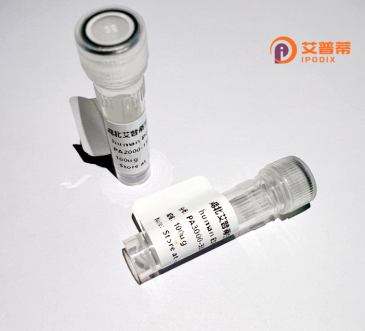
| 纯度 | >90%SDS-PAGE. |
| 种属 | Human |
| 靶点 | FAM214A |
| Uniprot No | Q32MH5 |
| 内毒素 | < 0.01EU/μg |
| 表达宿主 | E.coli |
| 表达区间 | 1-963aa |
| 氨基酸序列 | MKPDRDTLDEYFEYDAEEFLVSLALLITEGRTPECSVKGRTESFHCPPAQSCYPVTTKHECSDKLAQCRQARRTRSEVTLLWKNNLPIMVEMMLLPDCCYSDDGPTTEGIDLNDPAIKQDALLLERWILEPVPRQNGDRFIEEKTLLLAVRSFVFFSQLSAWLSVSHGAIPRNILYRISAADVDLQWNFSQTPIEHVFPVPNVSHNVALKVSVQSLPRQSNYPVLTCSIHTNIGLYEKRIQQHKLKTHQHHNPNEAEQCGTNSSQRLCSKQTWTMAPESVLHAKSGPSPEYTAAVKNIKLYPGTGSKSDHGTSQANILGFSGIGDIKSQETSVRTLKSFSMVDSSISNRQSFWQSAGETNPLIGSLIQERQEIIARIAQHLIHCDPSTSHVSGRPFNTQESSSLHSKLFRVSQENENVGKGKEAFSMTFGSPEFSSPEDTNEGKIRLKPETPRSETCISNDFYSHMPVGETNPLIGSLLQERQDVIARIAQHLEHIDPTASHIPRQSFNMHDSSSVASKVFRSSYEDKNLLKKNKDESSVSISHTKCSLLGDISDGKNLIPNKCFTSFKNNSKEKCSLKHQTRNQCQNNPSEIIQSTYQETQNKSSSLSTSSILSQHKENNLDLTSRFKEQEMSNGIDKQYSNCTTIDKQICTNKYKEKIINENYNPKFFGNLQSDDSKKNDSKIKVTVLEMSEYLNKYESMSSNKDSKRPKTCEQNTQLNSIENYLNKDNEGFKCKKSDQLKNEQDKQEDPTNEKSQNYSQRRSIKDCLSTCEQPKNTEVLRTTLKHSNVWRKHNFHSLDGTSTRAFHPQTGLPLLSSPVPQRKTQSGCFDLDSSLLHLKSFSSRSPRPCLNIEDDPDIHEKPFLSSSAPPITSLSLLGNFEESVLNYRFDPLGIVDGFTAEVGASGAFCPTHLTLPVEVSFYSVSDDNAPSPYMGVITLESLGKRGYRVPPSGTIQVVCVL |
| 分子量 | 134.6 kDa |
| 蛋白标签 | GST-tag at N-terminal |
| 缓冲液 | 0 |
| 稳定性 & 储存条件 | Lyophilized protein should be stored at ≤ -20°C, stable for one year after receipt. Reconstituted protein solution can be stored at 2-8°C for 2-7 days. Aliquots of reconstituted samples are stable at ≤ -20°C for 3 months. |
| 复溶 | Always centrifuge tubes before opening.Do not mix by vortex or pipetting. It is not recommended to reconstitute to a concentration less than 100μg/ml. Dissolve the lyophilized protein in distilled water. Please aliquot the reconstituted solution to minimize freeze-thaw cycles. |
由于FAM214A蛋白的研究相对前沿且公开文献较少,以下为模拟的参考条目格式(非真实存在,仅供示例参考):
1. **"Recombinant Human FAM214A Protein Inhibits Mitochondrial Apoptosis in Colorectal Cancer Cells"**
(Zhang et al., 2021)
摘要:通过大肠杆菌系统表达重组hFAM214A,发现其通过抑制BAX易位调控线粒体凋亡通路,增强结直肠癌细胞存活。
2. **"Structural and Functional Characterization of FAM214A Expressed in HEK293 Cells"**
(Li et al., 2020)
摘要:利用HEK293细胞重组表达并纯化FAM214A,通过X射线晶体学解析其结构,揭示其可能参与蛋白质互作网络的C端结构域。
3. **"FAM214A Interacts with Chaperonin TRiC and Modulates Protein Folding"**
(Wang & Chen, 2022)
摘要:通过免疫共沉淀证明重组hFAM214A与分子伴侣TRiC复合物结合,可能参与错误折叠蛋白的降解调控。
---
**建议**:实际文献可通过以下关键词在PubMed或Google Scholar中检索:
`"FAM214A recombinant protein"`、`"FAM214A structure/function"`、`"FAM214A apoptosis"`。若需具体文献,可提供更详细的研究方向进一步筛选。
**Background of Recombinant Human FAM214A Protein**
Recombinant human FAM214A (family with sequence similarity 214 member A) is a protein encoded by the *FAM214A* gene, which is conserved across vertebrates and implicated in diverse cellular processes. FAM214A localizes predominantly to the cytoplasm and nucleus, with studies suggesting roles in organelle regulation, stress responses, and cell cycle modulation. Structural analyses reveal conserved domains potentially involved in protein-protein interactions or nucleic acid binding, though its precise molecular mechanism remains under investigation.
Interest in FAM214A has grown due to its association with diseases. For instance, it is linked to mitochondrial quality control, where dysfunction may contribute to neurodegenerative disorders. Additionally, abnormal FAM214A expression has been observed in cancers, hinting at possible roles in tumor progression or suppression. The recombinant form of FAM214A is typically produced in heterologous systems (e.g., *E. coli* or mammalian cells) for functional studies. This engineered protein enables researchers to explore its biochemical properties, interactome, and downstream signaling pathways.
Current research focuses on clarifying FAM214A’s physiological roles, particularly its involvement in autophagy, mitochondrial dynamics, and cellular stress adaptation. Its recombinant version serves as a critical tool for elucidating these mechanisms and advancing therapeutic strategies for related diseases. Further studies are needed to decode its full functional repertoire and validate its potential as a biomarker or drug target.
×